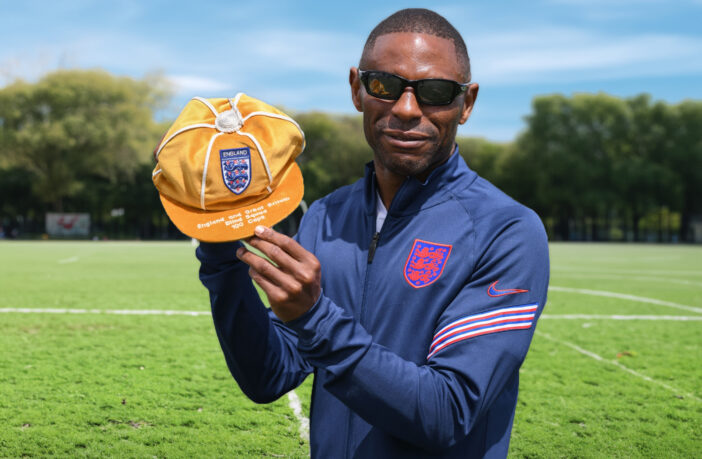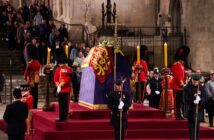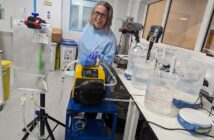As excitement builds for the Paris Paralympic Games, we caught up with Darren who, whilst competing in two separate Paralympic disciplines, completed a Psychology Conversion Course with The Open University (OU).
Darren reflects how the flexibility of OU study made it possible to juggle the demands of training with an intensive postgraduate programme, in a field that was completely new to him.
A born athlete
A rare eye condition caused Darren’s sight to deteriorate throughout his childhood, leaving him completely blind by the time he reached his 20s. Having loved sports from a young age, Darren discovered a national league for blind players where his talent was noticed by the then England coach, Tony Larkin.
“Sport was always a part of me – it was in my DNA. I love the connection of sport – that one thing that brings people together,” says Darren. “I made my England debut in 1996 and became captain of the team in 2002.”
Winning medals in six consecutive European Championships and helping the team qualify for the 2008 Beijing Paralympics, Darren was top of his game when he made the switch to Judo – a sport he’d enjoyed at school.
“Football and Judo aren’t as different as they appear to be. I used to view Judo as an individual sport, but I realised when I took it up professionally that you’re so reliant on the team,” explains Darren.
“Whether it’s counting on your training partner to show up or the expertise the coaches and the support team bring – like football, you can only be as good as the team around you.”
Discovering psychology
It was while Darren was preparing for Beijing that his interest in psychology was sparked.
“We were all given the opportunity to speak with Pete Lindsay, a sports psychologist,” Darren remembers. “I was sceptical about it at first, but I came away wanting to know more.”
Whilst still training, Darren embarked on a psychology conversion course – an intensive post-graduate programme in a subject your degree or career hasn’t prepared you for.
“My first degree was in maths, where there’s a definite right or wrong, whereas psychology is more nuanced,” says Darren. “You discover about the world around you and can better understand it. I learned a lot about myself, particularly around attachment and relationships.”
Now inspiring others to reach their potential through motivational speaking, mentoring and peak performance coaching, Darren regularly uses tools and techniques he developed during his time at the OU.
“My sessions are more rounded, and I can draw on what I learned to help motivate those I’m working with,” Darren reflects. “I went from being a sceptic to a scholar – OU study taught me to have a more critical eye and look more deeply into the information I’m presented with.”
The student experience
With access to audio and video recordings, a student support team and digital talking books, Darren found OU study “revolutionary” compared to his maths degree at a red-brick university in the 1990s.
“I found the OU very accommodating of my needs – they were also receptive to feedback on how things could be improved,” he says.
Although studying while training for competitions was challenging, Darren found himself well prepared.
“When I was physically tired, I found my studies a great way to switch off from sport. They’re two different skill sets but you need the same qualities – determination, being able to work independently and having very clear goals,” says Darren.
“Even exams are a bit like competitions – you have to give your best performance on the day, even if you’re not feeling your best.”
As a sportsperson with high levels of self-motivation, Darren was a perfect fit for independent study, but he also enjoyed being part of the OU’s student community.
“I met people from all different backgrounds and I’m still in touch with several of them now, it’s great to hear what they’re up to when we catch up,” says Darren. “My advice to anyone studying at the OU, is to find a way to connect with people – we’re social animals by nature, human connection is really important.”
Life after professional sport
Plagued by injury, Darren left Judo behind in 2011, but still managed to compete at one last Paralympic Games – London 2012 – with a return to the blind football team.
Since then, his outstanding contributions to charitable causes have earned Darren an honorary doctorate from The Open University and he’s helped people from all walks of life through his business.
“I miss the camaraderie of sport – the excitement and exhilaration – but everyone needs a reason to get up in the morning, so I find it helpful to create clear goals,” Darren shares. “I’m aiming to inspire a million people… and I’m not far off!”
A lifelong sports fan, Darren will be cheerleading the Paris Olympic and Paralympic teams from afar.
“I had the opportunity to go out to the village, but already had speaking engagements booked, so I’ll be following the games from home.”
Darren adds, “I know a few of the athletes competing, so I’ll be rooting for them especially.”



